STARRS President Ron Scott asked the retired military chaplains on STARRS Board of Advisors their thoughts on this Military Times article, “Army releases spirituality fitness guide and battle book” and the guide itself.
From the article:
The U.S. Army released a spirituality guide to help soldiers gauge their spiritual fitness, much like they would their physical fitness. The 112-page guide lays out spiritual fitness principles, stages of development and training among other areas across nine chapters.
In addition to the guide, the Army also released a Battle Book — a type of workbook companion to the guide and the first volume of a graphic novel series titled “Will to Fight.”
“It’s for every soldier and every leader regardless of religious background,” said Sgt. Maj. Meaghan Simmons. The concept is to support spiritual readiness much like other sources support physical readiness.
The documents are not focused on any one religion, said Sgt. Maj. Dustin Hall, chief religious affairs officer at III Corps. “Spiritual fitness is less concerned with what someone believes and more concerned with, does it work?” Hall said. “Can you identify purpose and meaning and hold up under fire?” . . . . (more)
US Army Spiritual Fitness Guide (pdf)
Chaplain, Maj General Charles C. Baldwin, USAF ret, and a 1969 graduate of the United States Air Force Academy was the Chief of Chaplains for the US Air Force from 2004 to 2008:
Dr Ron et al,
Through my years as an AF chaplain, I would encounter some motivational programs that attempted to improve the personal life of the Airman, and, improve the morale of the unit. Some were led by chaplains, other programs came out of the Base Counseling Center/Family Life Center, or perhaps a commander-inspired leadership training moment.
When I first became a chaplain in 1979, the Chaplain Service had a program called “Families in Blue” that was created by the then-Chief of Chaplains Richard Carr. It was a program to help AF members AND their families to get involved in the AF community. It included encouraging people to get involved with the chapel, etc.
I never thought about “challenging the program”; it seemed helpful. As I think about it after all these years, I wonder if it was a distraction from what the Chaplain Service was/is suppose to be doing, e.g. “guarantee the free exercise of religion.” I get a little nervous when people say “I’m not religious; I’m spiritual.” It seems to be a criticism of “Faith-based religions.” I once had a chaplain supervisor who told me “you are too narrow…too much Bible…don’t be so judgmental…you will never make it in the Chaplain Service.” I tried to respect and help people of all Faith groups and “no faith groups” . But, I believed that Title 10 of the US Code was very clear about the role of a chaplain. And so I did my best, at the appropriate times (worship services, Bible Studies) to preach the Gospel and lead people to faith in Jesus Christ.
At Lackland AFB, the chaplains were asked to lead “Adult Value Education” for all the Basic Airmen. We were told not to judge people’s opinions, but to let them express their values as they enter the military family. The appropriate response from the chaplain was “Thank you for sharing that.” It was an opportunity to introduce “Just War Theory” and to talk about “killing the enemy”—moral choices that are a part of being in the military. So I concluded “AVE’s” were helpful, but not my primary role in the military.
I say ALL THAT to say, I do hope this “Spirituality Guide” never takes the place of, in my case, “Christian preaching and teaching”; or of Sacramental instruction for the liturgical Faith communities. I hope the Jewish military members will still be able to celebrate their High Holy Days. The “Free Exercise” guarantee in the First Amendment is not satisfied by a, I would call it, a “neutral” course of spiritual training.
Please let me know if this is helpful. I have a grandson, West Point Class of 2024, who just finished Ranger Training. (I am very proud of him). I am going to ask him if he has heard of this Spirituality Guide.
V/R,
Ch Charlie Baldwin
—
Chaplain, Colonel Alexander F. C Webster, US Army ret (Ret.) provided his thoughts:
Thank you, Sir, for that excellent response to the article and Ron Scott’s question.
My initial thoughts hearken back to my own experience with attempts by the US Army Chaplains’ Corps to provide such “one size fits all” guidance and programs for our chaplains.
The website that Ron Scott cited ( https://www.militarytimes.com/news/your-army/2025/08/01/army-releases-spirituality-fitness-guide-and-battle-book/ ) is typical of what I had to endure long ago in the late 1980s and what the US armed forces seem determined to keep producing with each generation:
“The guide also outlines examples of spiritual fitness plans and ways to gauge each exercise’s effectiveness through the eight spiritual principles. Those principles are: simplicity, consistency, integration, flexibility, unity of effort, sustainability, economy and responsiveness.”
That kind of list is, in my estimation, strictly secular and not “religious” at all! Those “principles” are useful and perhaps essential to military operations and management per se. But they have nothing to offer persons of religious faith.
If I seem a bit jaded, it is because my struggle with that kind of imposed secular universalism during my initial tour of duty as a chaplain led me to request a REFRAD (OWN REQUEST) with ten months remaining in my initial tour of active duty.
Attached in a follow up email is a pdf document is an article I published in a Roman Catholic journal titled Homiletic and Pastoral Review, which was sent to every parish rectory in America (around 20,000 at that time): Webster, A. F. C. “Crisis in the Chaplaincy: Where are the Soldiers of Christ?” (pdf) Homiletic and Pastoral Review 89.10 (1989): 48–55.
Despite my REFRAD and the hard-hitting published article–each a “kiss of death” for further military service on active duty–I continued to serve as a chaplain in the Virginia Army National Guard and the Pennsylvania Army National Guard and–amazingly–again back on active duty for 5 more years after my promotion to 0-6. I like to think that the Lord was watching over me and guiding me all that time!
I welcome your comments.
Fr. Alexander


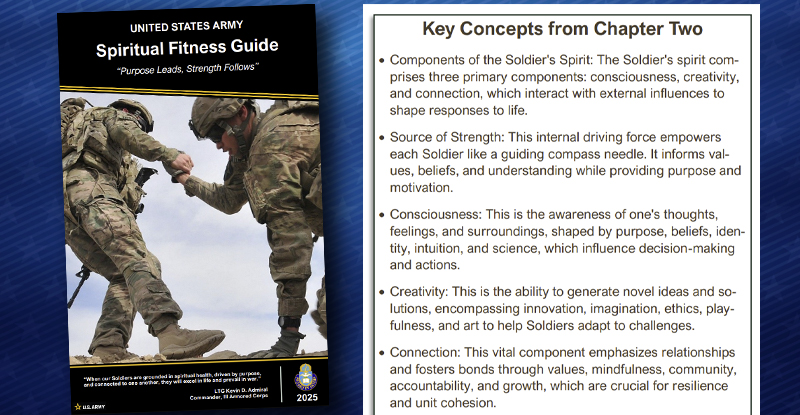
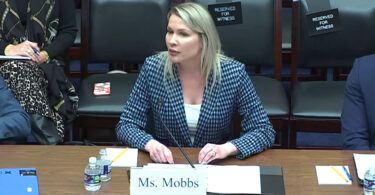
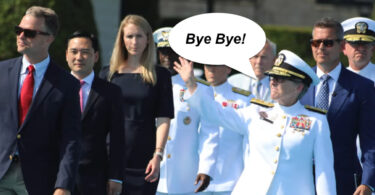


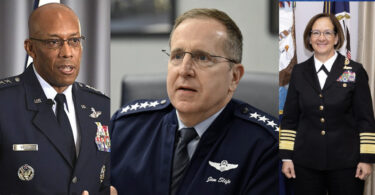
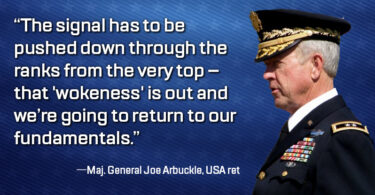
Leave a Comment